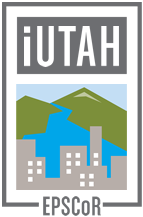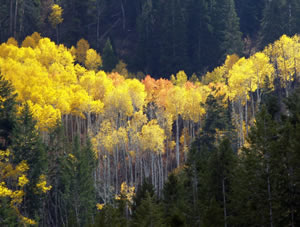News and Highlights
This is a list of past iUTAH EPSCoR news from 2012 to 2018.
January 14, 2016
Recent Updates of iUTAH Data Are Now Available
Good news in 2016! iUTAH researchers have been busy generating datasets, and the iUTAH data repository is growing. To publish your dataset (and even have it featured here), deposit it in the repository, and contact the iUTAH Data Manager Amber Jones.
And, don’t forget that datasets are reportable items in ER-Core (aka Drupal). We encourage you to publish and report your datasets to get credit for your work and results. Some of the latest submissions are listed below:
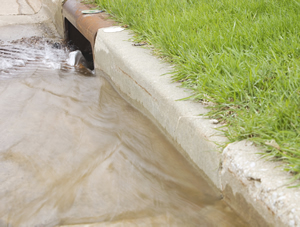
Water Manager Interviews and Survey
Andrea Armstrong conducted surveys and interviews with water managers from a variety of municipalities, irrigation companies, and the private sector. She has published the following datasets representing research conducted during her three years as an iUTAH graduate research assistant.
- Final Report: Armstrong 2013 Exploratory Interviews of Water Managers (2015)
Final Report summarizing exploratory interviews of local water managers in the Wasatch Regional Metropolitan Area, specifically Cache Valley, Heber Valley, and the Red Butte Watershed of Salt Lake City, UT. - Armstrong 2014 Final Report Stormwater Manager Interviews (2015)
This report summarizes interviews of stormwater managers throughout Utah and includes preliminary analyses. - Survey of Stormwater Managers in Utah (2015)
An effort in partnership with the Utah Storm Water Advisory Committee surveyed stormwater managers throughout Utah regarding attitudes, perceptions, and behaviors surrounding stormwater management. This dataset contains the anonymized survey results as well as a summary report. - Utah Municipalities Stormwater Annual Reports (2015)
This dataset includes a compliation of stormwater organizations’ annual reports and tables used to code these reports to track longitudinal changes in stormwater programs.
Dataset: Sapflux in GAMUT Watersheds. Allison Chan and Dave Bowling have collected and published sapflux data for aspen and fir from sites in the Logan River and Red Butte Creek watersheds. The datasets contain raw and processed sapflux data as well as meteorological and soil temperature and moisture measurements. Learn more at:
- T.W. Daniels Sapflux Subalpine Fir (24 March 2014 - 12 July 2015)
- T.W. Daniels Sapflux Aspen (13 May 2014 - 12 July 2015)
- Knowlton Fork Sapflux (through 5 July 2015)
December 30, 2015
How Plants Can Make Stormwater Cleaner
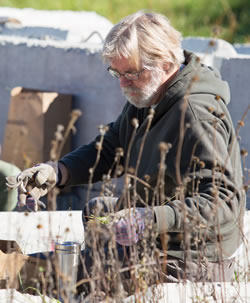
Utah State University and iUTAH researcher Ryan Dupont was featured in an article as he oversees a research study that could unveil new information about low-cost phytoremediation. The article says that "[i]n cities across the West, precipitation is collected in urban centers by gutters and drains, channeled outside city limits and, in some cases, piped into irrigation canals or natural waterways. This system has been around for decades, but it’s under increasing scrutiny in light of new research that shows stormwater in urban areas carries harmful pollutants to downstream rivers and lakes...."
For more on the larger impact of this research, visit “Heavy Metals — How Plants can Help Make Stormwater Cleaner,” published on Apr. 16, 2015, on Utah State Today.
December 28, 2015
WaterGirls: Science, Nature, and Inspiration!
The Utah Department of Environmental Quality invited Salt Lake Community College and iUTAH researcher Maura Hahnenberger to be a guest blogger on their website, and thoughts on issues that impact our environment.
“WaterGirls came about from a desire to provide similar experiences to girls at that same critical time in their development. While doing science experiments in a classroom is a great learning experience, it does not give you the emotional experience of participating in science out in the field, where you personally interact with your environment and understand how it works.”
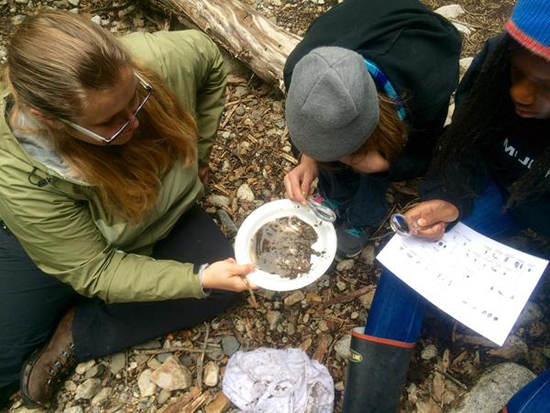
WaterGirls field experience program in action
December 21, 2015
University of Utah and iUTAH researcher Paul Brooks was recently featured in the news. Mountain pine beetle populations have exploded over the past decade due to warmer temperatures and drier summers, and these insects have infected and killed thousands of acres of western pine forests. Researchers have predicted that as trees died, streamflow would increase because fewer trees would take up water through their roots.
A recent study by University of Utah geology and geophysics professor Paul Brooks and his colleagues in Arizona, Colorado and Idaho, found that if too many trees die, compensatory processes kick in and may actually reduce water availability. When large areas of trees die, the forest floor becomes sunnier, warmer and windier, which causes winter snow and summer rain to evaporate rather than slowly recharging groundwater.
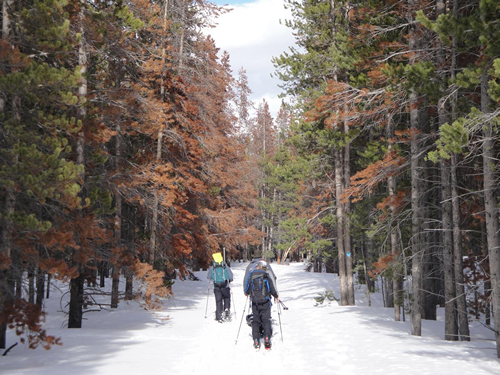
Researchers ski past dying trees. Credit: Provided by Paul Brooks
December 18, 2015
iUTAH's Michelle Baker to Receive Prestigious Governor's Medal for Science and Technology
Utah State University biology professor Michelle Baker is one of four USU faculty members to be honored with the 2015 Governor’s Medal for Excellence in Science and Technology. Baker will receive the State’s highest science honor in the field of education for her work as an aquatic ecologist studying biological, chemical, and physical processes that affect water quality in streams and rivers. She is also the Project Director of iUTAH EPSCoR , a multi-institutional project integrating research, training, and education, aimed at strengthening science for Utah’s water future.
Baker’s award nomination says that her “leadership has been key to the success of this highly interdisciplinary project, which includes partners from educational institutions, government agencies, industry, and non-profit organizations.”

USU professor of biology and iUTAH Project Director Michelle Baker
For more on all the Utah State University honorees, visit “A testament to USU:' Four USU faculty receive governor's medal,” published on Dec. 18 2015, in the Herald Journal
December 10, 2015
Sociologist Uses Crowdfunding to Fund Antarctica Research Trip
Utah State University and iUTAH researcher Melissa Haeffner was interviewed by Utah Public Radio. During the inverview, Haeffner said crowdfunding is a great way to involve non-scientists in her research.
“From doing this, I see a demand from the public who want to see results of science and what scientists are doing. You know, they’re very interested in that,” Haeffner said. “And even though if they might not understand hypotheses and factor analysis they really want to know that people are doing science, what kind of questions people are asking, how they’re going about it and what’s coming from that research.”
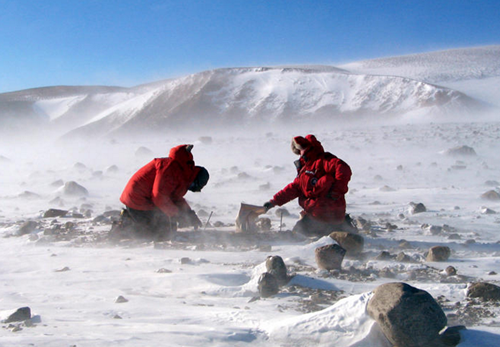
Melissa Haeffner's crowdfunding campaign will pay part of her research trip to Antarctica next December CLEANET.ORG
